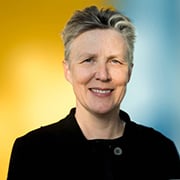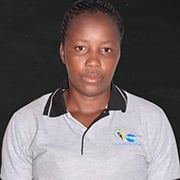Protection Considerations
Tuesday 29 September 2020, 15:00 - 16:30 (CEST)
Tuesday 29 September 2020, 15:00 - 16:30 (CEST)
Unsurprisingly, there is a growing body of evidence supporting the proposition that operations in which NGOs, UN agencies and other humanitarian actors had invested time and resources pre-pandemic in forging strong protection partnerships with communities were able to adapt to new realities faster and experienced less interruption in access to and delivery of protection and other key services. Conversely, those who had not were left scrambling to develop such partnerships in a far more challenging context. The lesson to be drawn is an obvious one: For humanitarian actors, governments and donors, prioritizing investment from the onset of an emergency in community-based approaches to protection places humanitarian operations on a more sound and durable foundation.
The session will feature three practitioner/panelists who will each share their perspectives and first hand experiences of community-based protection in action during the ongoing pandemic in order to kick off a broader discussion and sharing of experiences by participants based on submissions sent in advance of the session.
Share your example of engaging with Communities during COVID-19! Registered participants interested in sharing an example of community-based protection in action during the pandemic are invited to submit a short summary of their example using this form by 24 September 2020. Those selected will be notified in advance that they will be called on by the session moderator to give a maximum 3-minute presentation from the floor.
During the session the group will endorse a set of key recommendations focused on community-based protection.
 Gillian Triggs is a highly renowned expert in international law who has held a number of eminent appointments in service to human rights and the refugee cause, including as the President of the Australian Human Rights Commission and the Vice-Chancellor’s Fellow and Emeritus Professor at the University of Melbourne. Triggs oversees UNHCR’s protection work for millions of refugees, internally displaced, stateless and other people of concern. She has previously served as President of the Asian Development Bank Administrative Tribunal, Chair of the UN Independent Expert Panel of Inquiry into Abuse of Office and Harassment in UNAIDS, Dean of International Law at the University of Sydney and as Director of the British Institute of International and Comparative Law in London. Triggs has been closely associated with a number of not-for-profit organizations throughout her career, including as Chair of Justice Connect, an organization that connects 10,000 lawyers to provide pro bono advice to asylum-seekers and others in need of legal support in Australia. She is also the author of many books and papers on public international law.
Gillian Triggs is a highly renowned expert in international law who has held a number of eminent appointments in service to human rights and the refugee cause, including as the President of the Australian Human Rights Commission and the Vice-Chancellor’s Fellow and Emeritus Professor at the University of Melbourne. Triggs oversees UNHCR’s protection work for millions of refugees, internally displaced, stateless and other people of concern. She has previously served as President of the Asian Development Bank Administrative Tribunal, Chair of the UN Independent Expert Panel of Inquiry into Abuse of Office and Harassment in UNAIDS, Dean of International Law at the University of Sydney and as Director of the British Institute of International and Comparative Law in London. Triggs has been closely associated with a number of not-for-profit organizations throughout her career, including as Chair of Justice Connect, an organization that connects 10,000 lawyers to provide pro bono advice to asylum-seekers and others in need of legal support in Australia. She is also the author of many books and papers on public international law.
 Ms. O’Hara is an Irish national. She holds a law degree from Trinity College Dublin and was called to the Bar in Ireland in 1992. After two years of service with the Free Legal Advice Centres in Dublin she opted for an international career and joined UNHCR in 1994 as a United Nations Volunteer. In 24 years with UNHCR she has served in a variety of functions and operational settings spanning a wide range of protection related responsibilities. Her postings have included: Mexico; North Macedonia; Kosovo; Burundi; Sudan; the Caribbean; the United States of America; Afghanistan; Syria; Iraq and Jordan. She took up her current assignment as Director of the Division of International Protection on 1 June 2018 following a preceding stint as Deputy Director at UNHCR’s Office in New York.
Ms. O’Hara is an Irish national. She holds a law degree from Trinity College Dublin and was called to the Bar in Ireland in 1992. After two years of service with the Free Legal Advice Centres in Dublin she opted for an international career and joined UNHCR in 1994 as a United Nations Volunteer. In 24 years with UNHCR she has served in a variety of functions and operational settings spanning a wide range of protection related responsibilities. Her postings have included: Mexico; North Macedonia; Kosovo; Burundi; Sudan; the Caribbean; the United States of America; Afghanistan; Syria; Iraq and Jordan. She took up her current assignment as Director of the Division of International Protection on 1 June 2018 following a preceding stint as Deputy Director at UNHCR’s Office in New York.
 Kathrine Starup has more than 25 years of experience with humanitarian and displacement work. Kathrine has specialised in Protection incl. Community-Based Protection, displacement solutions for IDPs and refugees, protection information management and mixed migration. Kathrine has worked with the UN and international and local NGOs in the field and at headquarters and has field experience from Africa and Asia. Prior to joining DRC, Kathrine worked with UNHCR in the field. DRC is the co-founder of the Joint IDP Profiling Service - JIPS www.jips.org and Kathrine sits on JIPS’ Executive Committee since 2009. Kathrine is the co-founder of the Protection Information Management - PIM Initiative www.pim.guide (co-lead by DRC & UNHCR); Kathrine sits on the ICRC-led Advisory Group for the ‘Professional Standards for Protection Work’ since 2011; and she is a long-time member of the International Advisory Board to the Forced Migration Review – FMR www.fmreview.org
Kathrine Starup has more than 25 years of experience with humanitarian and displacement work. Kathrine has specialised in Protection incl. Community-Based Protection, displacement solutions for IDPs and refugees, protection information management and mixed migration. Kathrine has worked with the UN and international and local NGOs in the field and at headquarters and has field experience from Africa and Asia. Prior to joining DRC, Kathrine worked with UNHCR in the field. DRC is the co-founder of the Joint IDP Profiling Service - JIPS www.jips.org and Kathrine sits on JIPS’ Executive Committee since 2009. Kathrine is the co-founder of the Protection Information Management - PIM Initiative www.pim.guide (co-lead by DRC & UNHCR); Kathrine sits on the ICRC-led Advisory Group for the ‘Professional Standards for Protection Work’ since 2011; and she is a long-time member of the International Advisory Board to the Forced Migration Review – FMR www.fmreview.org
 SSSD is a Syrian local NGO providing critical protection response to displaced communities since the beginning of the Syrian crisis. SSSD programmes target internally displaced people, returnees and affected host communities, including unaccompanied and separated children, children in detention, children out of school, women-headed households and survivors of SGBV. SSSD operates through a network of 3000 community volunteers who are present in 200 locations such as: community centers, schools, communal shelters, unfinished buildings, and protection centers (such as Juveniles centers and rehabilitation centers for people with special needs). SSSD programmes include; Child Protection, prevention and response to SGBV, Health/MHPSS, Education, Shelter, Water, Sanitation and Hygiene Promotion; Early Recovery / Livelihood, and food.
SSSD is a Syrian local NGO providing critical protection response to displaced communities since the beginning of the Syrian crisis. SSSD programmes target internally displaced people, returnees and affected host communities, including unaccompanied and separated children, children in detention, children out of school, women-headed households and survivors of SGBV. SSSD operates through a network of 3000 community volunteers who are present in 200 locations such as: community centers, schools, communal shelters, unfinished buildings, and protection centers (such as Juveniles centers and rehabilitation centers for people with special needs). SSSD programmes include; Child Protection, prevention and response to SGBV, Health/MHPSS, Education, Shelter, Water, Sanitation and Hygiene Promotion; Early Recovery / Livelihood, and food.
 I CAN South Sudan is a registered Refugee-Led Community-Based Organization (CBO) operating in the Bidibidi Refugee Settlement, Yumbe District, Northern Uganda. I CAN South-Sudan, has a focus on unaccompanied and separated refugee children and youth and aims to identify and address particular risks, engage youth and develop their skills and talents through social and musical education, giving then an avenue to express concerns and experiences of displacement, establish confidence, and create friendships to support peace-building efforts, fostering cohesions and empathy among communities. I CAN South Sudan also implements a project that trains women in business management and entrepreneurship skills to support their self-reliance. I CAN South Sudan is working in Uganda under the Department of Child Protection OPM (Office of the Prime Minister Refugee Desk) Bidibidi, and in partnership with Misereor Germany and Oxfam.
I CAN South Sudan is a registered Refugee-Led Community-Based Organization (CBO) operating in the Bidibidi Refugee Settlement, Yumbe District, Northern Uganda. I CAN South-Sudan, has a focus on unaccompanied and separated refugee children and youth and aims to identify and address particular risks, engage youth and develop their skills and talents through social and musical education, giving then an avenue to express concerns and experiences of displacement, establish confidence, and create friendships to support peace-building efforts, fostering cohesions and empathy among communities. I CAN South Sudan also implements a project that trains women in business management and entrepreneurship skills to support their self-reliance. I CAN South Sudan is working in Uganda under the Department of Child Protection OPM (Office of the Prime Minister Refugee Desk) Bidibidi, and in partnership with Misereor Germany and Oxfam.